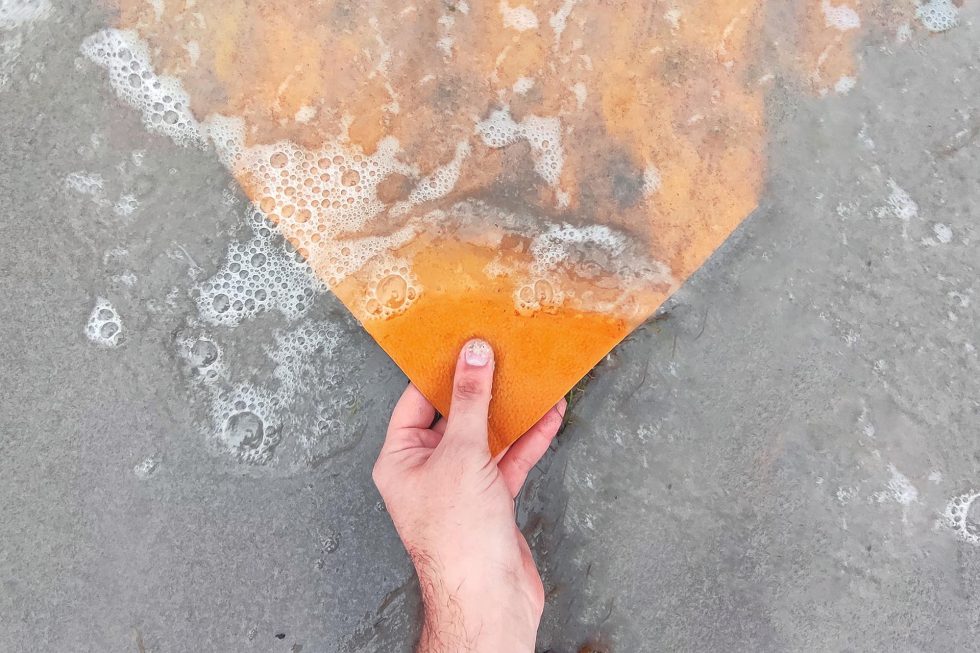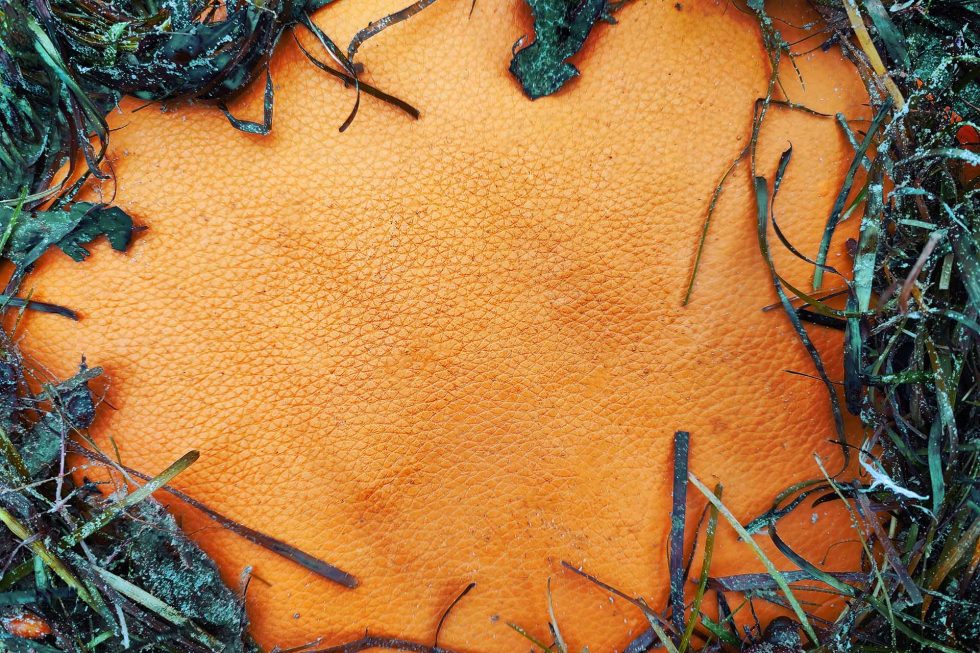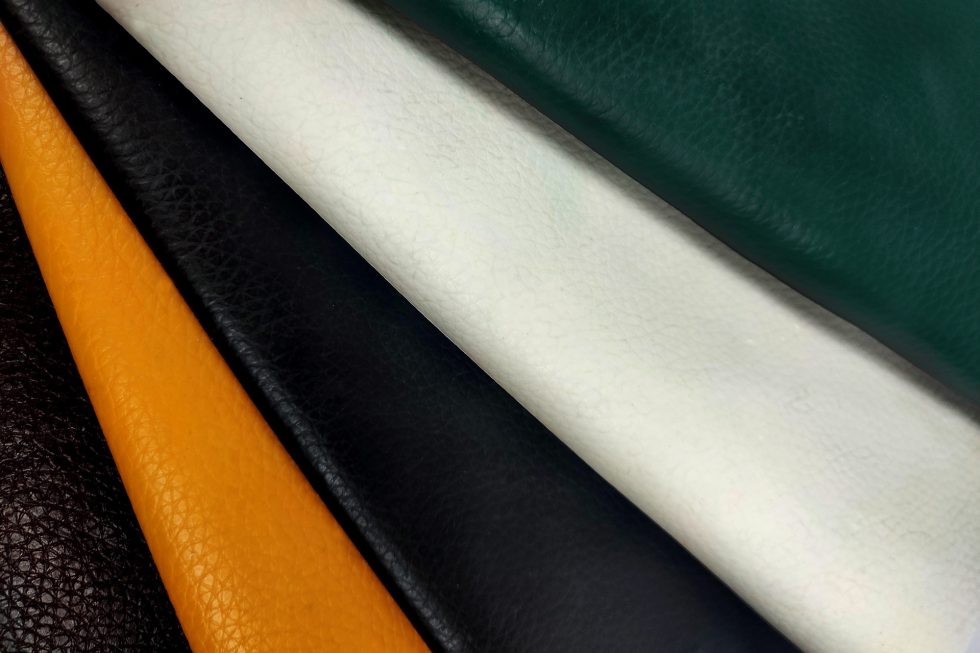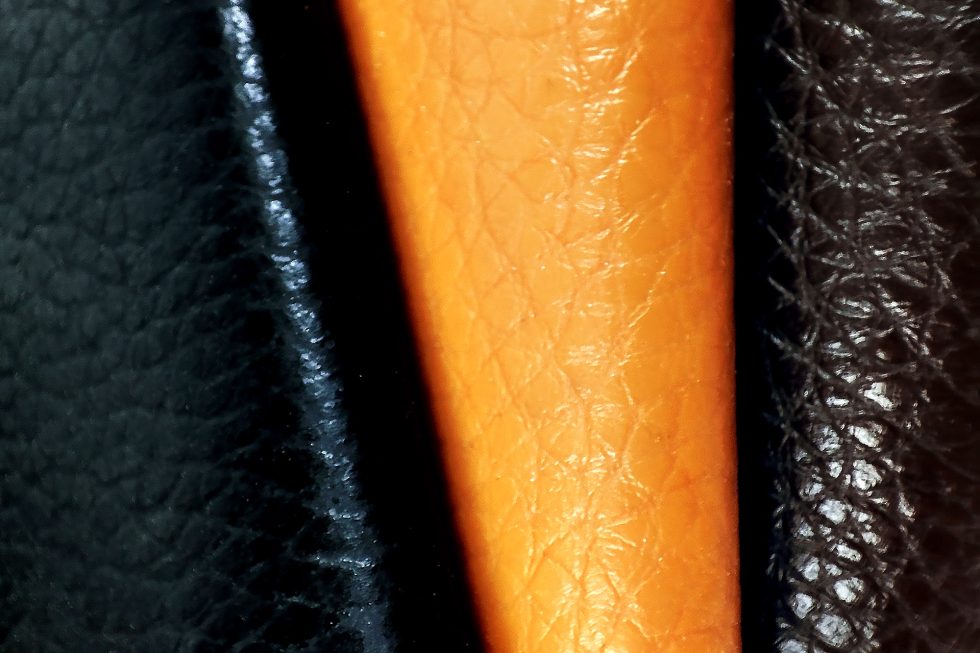Sea leather
In collaboration with IKEA of Sweden, marine materials have been explored to create textiles with a lower, even negative, carbon footprint.
Sea leather is a replacement for animal leather, cruelty-free, vegan, atoxic and completely biodegradable. This material is mainly composed of alginate, a polysaccharide extracted from brown algae, like kelp. This species of seaweed growing everywhere around the globe has been chosen for its carbon absorbing activity and high concentration of alginate. In fact, kelp forests are considered the most important carbon sink of the ocean. Kelps contain alginate, a substance that hardens in presence of a metal cation forming an ordered structure of polymers which, once dried completely, can be used as replacement for leather.
Aside from the fact that this material does not contain any harmful elements that might pose a risk for the environment, sea leather is naturally flame retardant and water resistant.
This exploration of the potential of marine material as a raw source for the development of disruptive textiles has led to relevant discoveries about not only replacement for leather, but also natural and low-impact replacement for polyurethane foam, named “sea foam” and “sea wool”.
This study is a way to raise awareness about the relevance of marine materials as alternative materials for the creation of eco-friendly textiles able to offset the carbon footprint of the product they are deployed in.
#materialdesign #materialdevelopment #materialinnovation #textile #leather #seaweed #marinematerial



